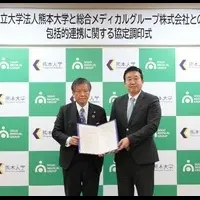
Fosun Pharma's Tenapanor Hydrochloride Tablets Receives NMPA Approval for Dialysis Patients
Fosun Pharma Achieves Milestone with NMPA Approval of Tenapanor Hydrochloride Tablets
In a significant advancement for the management of hyperphosphatemia among dialysis patients, Shanghai Fosun Pharmaceutical, also known as Fosun Pharma, has announced the approval of Tenapanor Hydrochloride Tablets by the National Medical Products Administration (NMPA) in China. This approval brings hope to individuals suffering from chronic kidney disease (CKD) who face challenges in controlling their serum phosphorus levels despite existing treatments.
Fosun Pharma, a leading healthcare company based in Shanghai, revealed that the approval is attributed to its subsidiary, Fosun Pharma Industrial, which developed the drug with an innovative mechanism that targets phosphate absorption in the gut. Tenapanor is recognized as the world’s first and currently only FDA-approved phosphate absorption inhibitor and is set to revolutionize treatments for patients on hemodialysis.
The Importance of Phosphate Control
Hyperphosphatemia, a condition characterized by elevated serum phosphate levels, poses serious risks to patients undergoing dialysis, particularly impacting their overall health and quality of life. Data indicates that a significant percentage of hemodialysis patients in China experience difficulty in achieving recommended phosphate control levels, with over 76% affected by hyperphosphatemia. Despite the existence of phosphate binders, many patients remain unable to meet target phosphate levels, worsening the management of their CKD-related complications.
The newly approved Tenapanor Hydrochloride Tablets address this pressing need by offering a novel approach to managing phosphate levels through dual mechanisms. As pointed out by Fosun Pharma's Executive President, Xingli Wang, this drug fills an important gap in the treatment options available for dialysis patients, particularly for those who do not respond adequately to phosphate binders or are intolerant to them.
Mechanism of Action
Tenapanor acts by inhibiting the intestinal sodium/hydrogen exchanger 3 (NHE3), thus reducing the absorption of phosphates from food. This innovative mechanism allows for improved phosphate control, especially when used in conjunction with standard treatment options. In clinical studies, the drug demonstrated significant efficacy, yielding a measurable decrease in serum phosphate levels for patients already on phosphate binders.
The results are promising: in a randomized double-blind study, patients treated with Tenapanor, alongside phosphate binders, experienced a more substantial reduction in phosphate levels compared to those receiving phosphate binders alone. Furthermore, another study showed that patients transitioning to a regimen that included Tenapanor were able to achieve phosphorus targets at a significantly higher rate, providing a new line of hope for those battling hyperphosphatemia.
Collaborative Efforts and Future Goals
The successful approval and anticipated market launch of Tenapanor also highlight the collaborative efforts between Fosun Pharma and its partner, Ardelyx. Mike Raab, CEO of Ardelyx, noted the shared commitment to enhancing the lives of patients through innovative therapies and underscored the importance of this approval in the broader scope of global health initiatives. Fosun Pharma aims to address unmet medical needs in China, focusing on innovative research and development across its primary therapeutic areas, including chronic diseases, oncology, and immunology.
In conclusion, Fosun Pharma's approval of Tenapanor Hydrochloride Tablets represents a significant milestone in the management of chronic kidney disease, particularly in improving the quality of life for dialysis patients facing hyperphosphatemia. As the company continues to develop and commercialize groundbreaking therapies, the outlook for patients suffering from this condition looks increasingly brighter.
Topics Health)










【About Using Articles】
You can freely use the title and article content by linking to the page where the article is posted.
※ Images cannot be used.
【About Links】
Links are free to use.